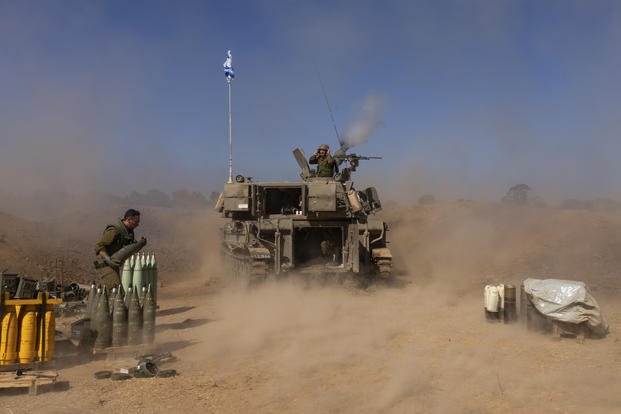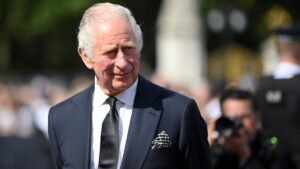Israel will take “overall security responsibility” in Gaza indefinitely after its war with Hamas, Prime Minister Benjamin Netanyahu said, the clearest indication yet that Israel plans to maintain control over the coastal enclave one month into a conflict that has claimed thousands of lives and leveled whole swaths of the territory.
In an interview with ABC News that aired late Monday, Netanyahu expressed openness to “little pauses” in the fighting to facilitate the delivery of aid to Gaza or the release of some of the more than 240 hostages seized by Hamas in its Oct. 7 attack into Israel that triggered the war.
But he ruled out any general cease-fire without the release of all the hostages, and the White House said there was no agreement on U.S. President Joe Biden’s call for a broader humanitarian pause after a phone call between the leaders.
The war has come at a staggering cost. Airstrikes have reduced entire city blocks to rubble, and around 70% of Gaza’s 2.3 million people have fled their homes, with many heeding Israeli orders to head to the southern part of the besieged territory, which is also being bombed.
Israeli troops have been battling Palestinian militants inside Gaza for over a week, and have succeeded in cutting the territory in half and encircling Gaza City. Food, medicine, fuel and water are running low, and United Nations-run schools-turned-shelters are overflowing.
The Palestinian death toll has surpassed 10,000, the Health Ministry of the Hamas-run Gaza Strip said Monday, including over 4,100 minors. More than 2,300 people are missing and believed to be buried under the rubble of destroyed buildings, the ministry said. The ministry does not distinguish between civilians and combatants, and Israel says it has killed thousands of fighters.
About 1,400 people in Israel have died, mostly civilians killed in the Oct. 7 incursion by Hamas. Israelis observed a moment of silence Tuesday in memory of the victims. The 30th day is a milestone in Jewish mourning, and memorial events are planned in Tel Aviv and Jerusalem.
Israel has vowed to remove Hamas from power and crush its military capabilities — but neither Israel nor its main ally, the United States, has said what would come next.
Netanyahu told ABC News that Gaza should be governed by “those who don’t want to continue the way of Hamas,” without elaborating.
“I think Israel will, for an indefinite period, will have the overall security responsibility because we’ve seen what happens when we don’t have it. When we don’t have that security responsibility, what we have is the eruption of Hamas terror on a scale that we couldn’t imagine,” he said.
Israel captured Gaza, the West Bank and east Jerusalem — the three territories that Palestinians want for a future state — in the 1967 Mideast war.
Israel annexed east Jerusalem in a move not recognized by most of the international community and continues to occupy the West Bank. It withdrew its troops and more than 8,000 Jewish settlers from Gaza in 2005, though it has maintained control over the territory’s airspace, coastline, population registry and all but one of its border crossings.
Hamas seized power from forces loyal to President Mahmoud Abbas two years later, confining his Palestinian Authority to parts of the West Bank.
Since then, Israel and Egypt have imposed a blockade on Gaza to varying degrees. Israel says the blockade is needed to keep Hamas from rearming, while Palestinians and rights groups see it as a form of collective punishment.
For now, Israel’s troops are focused on northern Gaza, including Gaza City, which before the war was home to some 650,000 people. Israel says Hamas has extensive militant infrastructure in the city, including a vast tunnel network, and accuses it of using civilians as human shields.
AP



























